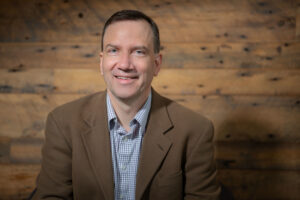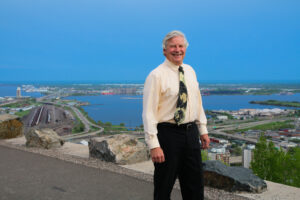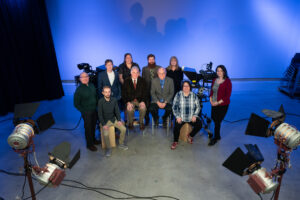MADISON, Wis.—The UW System Board of Regents today announced the 28th annual recipients of its Teaching Excellence Awards. The awards recognize outstanding teaching and are the UW System’s highest recognition for members of its faculty and instructional academic staff. Each recipient is awarded $7,500. The recipients were to have been honored at the Board of Regents April 2020 meeting in Madison. However, because of COVID-19, the ceremony will be rescheduled.
“These outstanding UW educators are devoted to student success,” said Regent Mike Jones, chair of the selection committee. “With this award, we recognize their innovative, collaborative approaches to teaching that prepare students to reach their full potential.”
Each award recipient demonstrates a strong commitment to teaching and learning; uses effective teaching strategies to enhance student learning; and makes a significant impact on students’ intellectual development.
The 2020 recipients are:
-
Jerry Hoepner, Associate Professor, Department of Communication Sciences and Disorders, UW-Eau Claire
Dr. Hoepner is dedicated to creating transformative learning experiences for all students in his courses, in his research mentoring, and in clinical settings. He engages in Scholarship of Teaching and Learning research to refine his teaching practices and address real-world questions from his students. He co-founded and serves on the editorial board of a disciplinary journal to share research on best practices for future speech-language pathologists and audiologists. He also helped develop a communication sciences and disorders think tank that began as a consortium of six UW System universities and expanded to an Upper Midwest consortium. To improve his courses, he focuses on student feedback, reflective practice, and peer feedback and mentoring. He implemented an apprenticeship model with student researchers that asks students to review session videos first to form their own judgments before they meet. He leads his department’s instructional internship program, in which undergraduate students can be a part of the teaching team for courses they have already completed. His published research includes student co-authors and contributors, an example of his commitment to mentoring future speech language pathologists. -
Richard Stewart, Professor, Transportation and Logistics Management, School of Business and Economics, UW-Superior
In addition to serving as a professor of Transportation and Logistics Management, Dr. Stewart is director of the Transportation and Logistics Research Center and co-director of the Great Lakes Maritime Research Institute. When he joined the faculty in 1999, he brought to UW-Superior a vision to create a world-class Transportation and Logistics Management major; within two decades of his leadership, the program grew from three students to one of the largest programs in the university. He uses case studies, student presentations, guest speakers, simulation technology, team teaching, and interactive lectures that feature tactile objects, such as international currency, to emphasize the concept of exchange rates. His classes include industry tours, trips on Great Lakes vessels, and visits to shipyards, railyards, and other facilities. Through his efforts, the program averages 26 percent women, which surpasses the average of 10 percent women employed in the industry; the program also averages 26 percent international students. His students have won at national and state competitions, such as the annual Intermodal Association of North America Student Competition and the Wisconsin Undergraduate Student Supply Chain Case Competition. -
Department of Radio TV Film, UW Oshkosh
UW Oshkosh’s Department of Radio TV Film, chaired by Dr. Andrew Smock, offers a 21st-century mass media education that helps students establish careers in modern media production and studies. Students have access to the latest in equipment and facilities used in the industry. Titan TV, WRST-FM, and Film Society serve as learning laboratories for students, who win state, regional, national, and international awards as well as internships. For example, students have won 17 competitive internships in the Academy of Television Arts & Sciences’ college student internship program. Graduates of the program work at radio and television stations around the country and for such well-established television networks as ABC, CBS, TNT, TLC, and Netflix, as well as major Hollywood films and TV shows such as Daredevil, Ford v Ferrari, The Avengers, and more. Alumni visit campus each fall to be interviewed for a televised, student-hosted industry panel. Students in the Los Angeles Connection course spend two weeks immersed in the Los Angeles entertainment industry, meeting more than 50 department alumni. Students present video projects and media scripts to the community and the on-campus Celebration of Scholarship, where they have won cash awards for their excellence.
Others on the selection committee were Regent Tracey Klein, Regent Edmund Manydeeds III, and Regent Carolyn Stanford Taylor.
NOTE:
For high-resolution photos, click each thumbnail image above.
The University of Wisconsin System serves approximately 170,000 students. Awarding nearly 37,000 degrees annually, the UW System is Wisconsin’s talent pipeline, putting graduates in position to increase their earning power, contribute to their communities, and make Wisconsin a better place to live. More than 80 percent of UW System graduates stay in Wisconsin five years after earning a degree. The UW System provides a 23:1 return on state investment. UW System universities also contribute to the richness of Wisconsin’s culture and economy with groundbreaking research, new companies and patents, and boundless creative intellectual energy.



